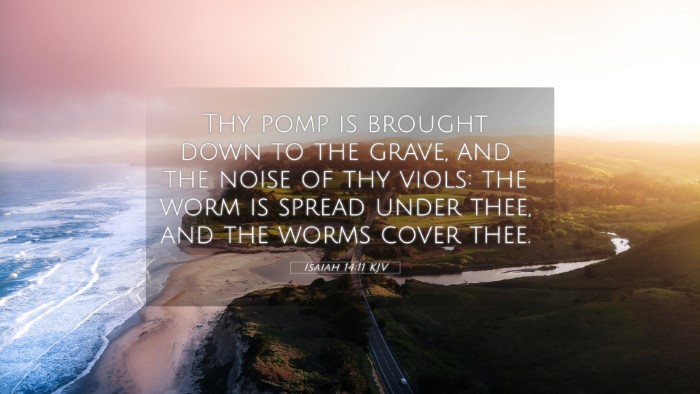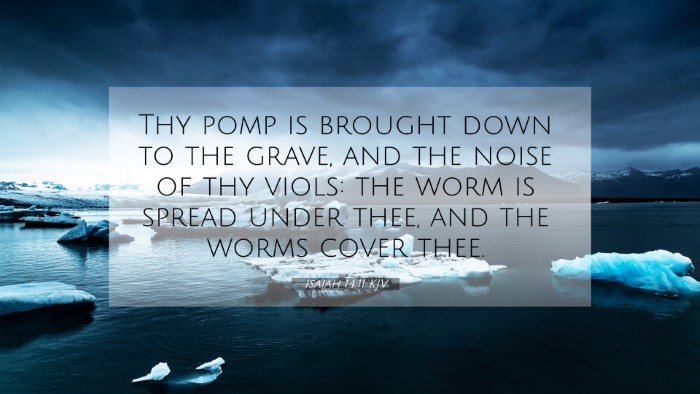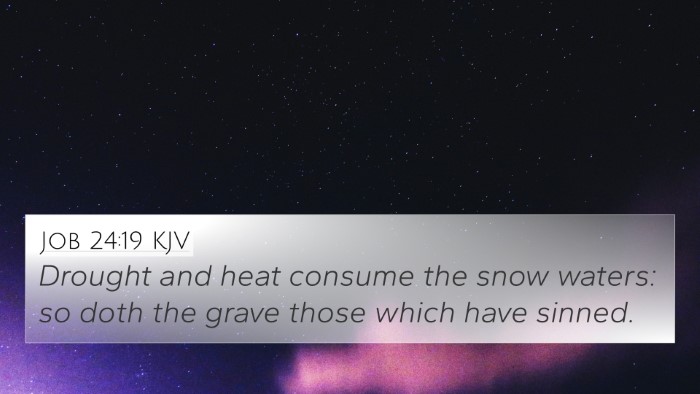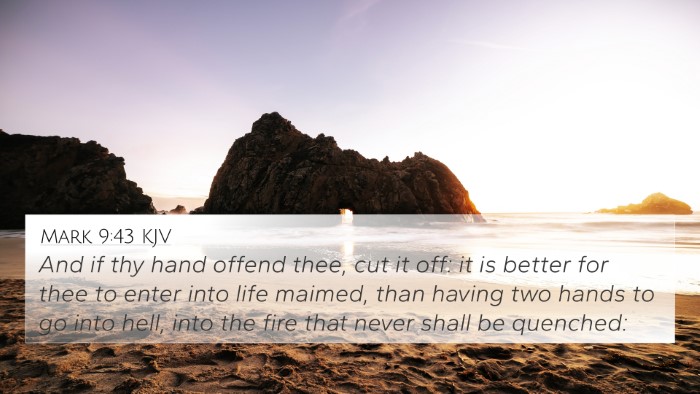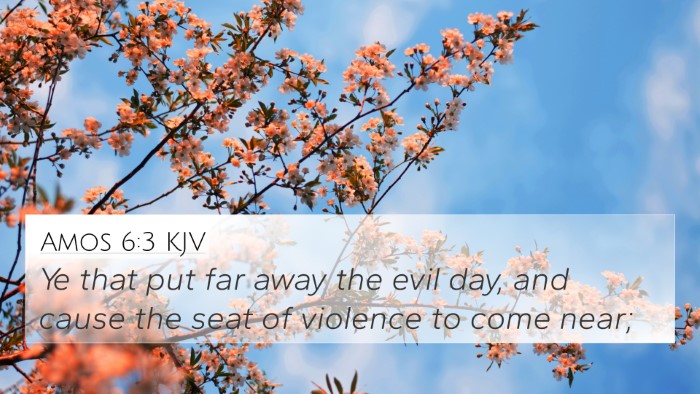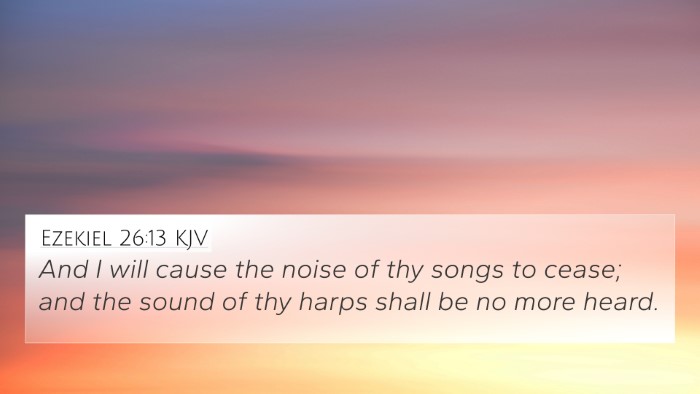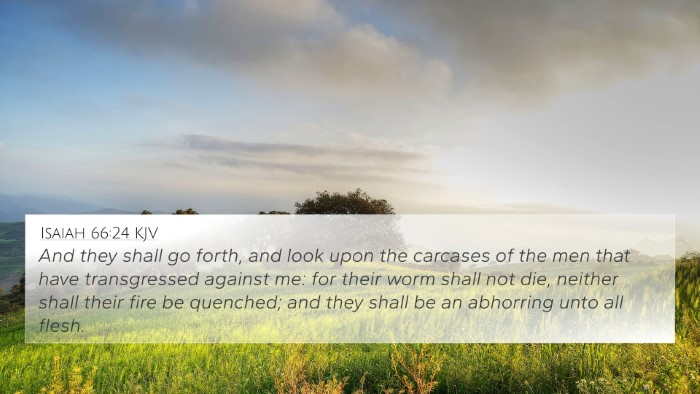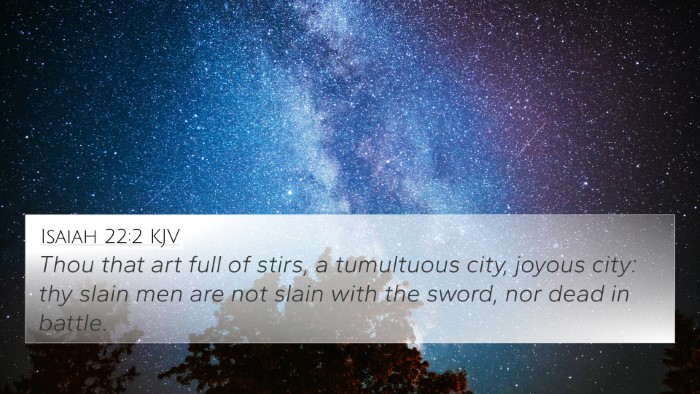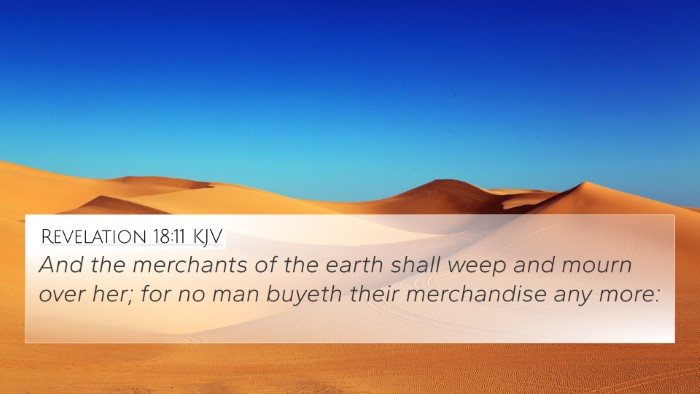Understanding Isaiah 14:11
Isaiah 14:11 states, "Your pomp is brought down to Sheol, and the sound of your harps; the maggot is spread under you, and worms cover you." This verse appears in a larger context where the prophet Isaiah delivers a lament against the king of Babylon, illustrating the downfall of the proud and powerful.
Summary of the Verse
This verse vividly depicts the demise of the king, contrasting former glory with the degradation that follows pride and rebellion against God. In essence, it serves as a stark reminder of the transient nature of power and status.
Commentary Insights
- Matthew Henry: Henry emphasizes that the pomp of the wicked and their earthly pleasures are nothing in the face of divine judgment. The reference to maggots and worms is a metaphor for the total humiliation and decay that comes after death, highlighting the futility of earthly pride.
- Albert Barnes: Barnes notes that this imagery depicts the king's fate after his death—what was once exalted will now be utterly debased. He connects this to the wider theme of divine justice, showcasing how God brings low those who lift themselves high.
- Adam Clarke: Clarke further elaborates on the significance of Sheol as a place of darkness and decay. He points out that the harps symbolize former joy and celebration, now turned to silence in the face of death, indicating the end of the king's reign.
Thematic Connections
The theme of divine judgment against pride in Isaiah 14:11 connects to several other scriptures:
- Proverbs 16:18: "Pride goes before destruction, and a haughty spirit before a fall."
- James 4:6: "God resists the proud, but gives grace to the humble."
- Psalms 37:20: "But the wicked shall perish, and the enemies of the Lord, like the glory of the meadows, shall vanish; into smoke they shall vanish away."
- Revelation 19:20: "And the beast was captured, and with it the false prophet." This relates to the ultimate downfall of those who oppose God.
- Luke 1:52: "He has put down the mighty from their thrones and exalted the lowly."
- Titus 1:16: "They profess to know God, but in works, they deny Him, being abominable, disobedient, and disqualified for every good work."
- Philippians 2:10: "That at the name of Jesus every knee should bow, of those in heaven, and of those on earth, and of those under the earth."
Cross-Referencing Insights
Using tools for Bible cross-referencing, we can analyze Isaiah 14:11 in light of both the Old and New Testaments:
- Identifying connections between the final cup of God's wrath in Revelation 14:10 and the ultimate humiliation of the proud.
- Understanding Ezekiel 28:17, where the fall of the prideful leader parallels that of Babylon’s king.
- Analyzing the parallels in Matthew 23:12, which warns that "whoever exalts himself will be humbled."
- Cross-referencing with Jeremiah 51:57, which speaks of the fall of Babylon, reinforcing Isaiah's prophecy.
- Considering Isaiah 2:11, which similarly reflects on the day of reckoning for human pride.
- This verse can be linked to 1 Peter 5:5, where Peter encourages humility, resonating with the themes of divine lifting and lowering.
- Examining the implications of judgment in Romans 12:19, where vengeance belongs to the Lord, implying divine justice as seen in Isaiah.
Practical Applications
In light of these reflections, believers are reminded of the importance of humility and the recognition of their own vulnerability before God:
- Reflect on personal pride and consider areas where humility needs to be fostered.
- Engage in regular study of these cross-references to deepen understanding of how divine justice operates throughout scripture.
- Utilize a bible concordance for comprehensive insights into related themes and verses.
- Incorporate cross-reference guides into personal Bible studies for richer thematic exploration.
Conclusion
Isaiah 14:11 serves as a powerful reminder of the fate of the proud and the ultimate triumph of divine justice. By studying interconnected Bible verses, believers can develop a deeper understanding of scriptural themes, ensuring a more profound engagement with God's word and encouraging a life of humility and reverence.

